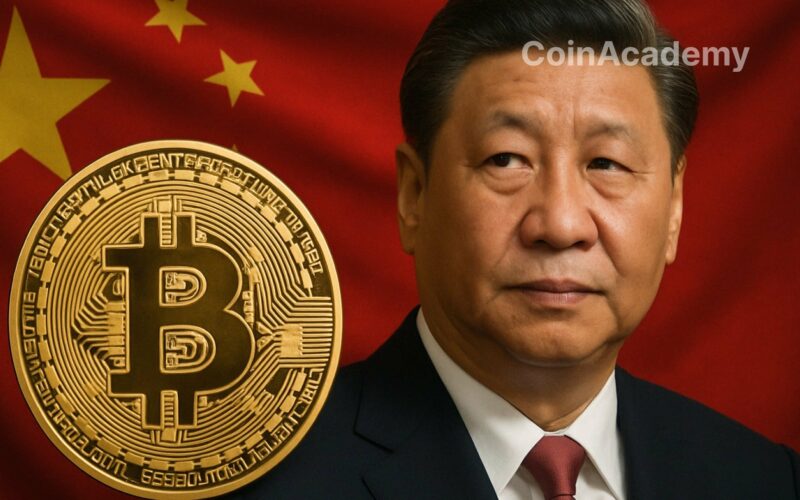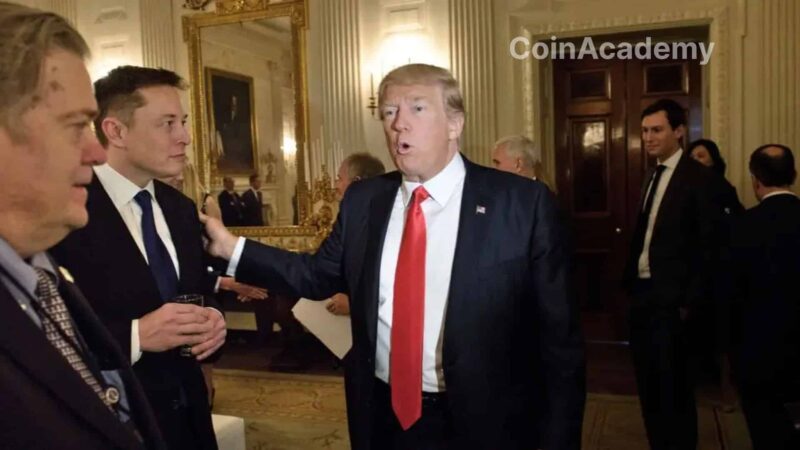The article focuses on the conflicting approach of China towards cryptocurrencies. While officially banned, local authorities continue to accumulate seized digital assets in order to generate revenue. These cryptocurrencies are then converted into cash by private companies operating in offshore markets, effectively filling the budget deficits of these local administrations.
The absence of a clear legal framework regarding the treatment of seized crypto assets creates opportunities for abuse. Legal experts and judges are calling for consistent regulation or even the establishment of a sovereign fund based in Hong Kong.
China is currently the second largest state holder of Bitcoin with 190,000 BTC. Centralizing these assets under the control of the central bank could transform this fortune into a strategic advantage while putting an end to the current hypocrisy.
Vente de Bitcoin en Chine : une pratique illégale devenue source de financement
In China, cryptocurrencies are officially banned, including trading, issuance, and legal recognition of these assets. However, local authorities discreetly accumulate large amounts of seized digital tokens in cases involving money laundering, online scams, and illegal gambling. Faced with increasing budget pressures, these local administrations turn to private companies to convert cryptocurrencies into cash, according to Reuters.
It is a complete paradox. On one hand, the central government formally prohibits any trade of crypto assets. On the other hand, municipalities sell these digital assets abroad to replenish their coffers. Technology company Jiafenxiang, based in Shenzhen, converted over 3 billion yuan (approximately €390 million) worth of cryptocurrencies on offshore markets on behalf of several cities in the Jiangsu province. The proceeds from these sales, converted into yuan through local banks, then directly contribute to public budgets.
Un vide juridique inquiétant
This improvised system, although profitable, relies on concerning legal ambiguity. There is no clear framework defining how cryptocurrencies should be treated once seized. This uncertainty opens the door to arbitrary and potentially corrupt practices. Lawyers, judges, and law enforcement officials are now calling for a profound overhaul of regulation.
During seminars organized in recent months, legal experts have advocated for the official recognition of cryptocurrencies as heritage assets. Such a development would allow for the establishment of unified rules for their judicial treatment, particularly in terms of preservation, liquidation, or strategic reuse. One scenario mentioned is the creation of a sovereign crypto fund, potentially based in Hong Kong, similar to what Donald Trump proposes with the establishment of a national reserve of bitcoins in the United States.
Bitcoin : un nouvel enjeu politique et économique majeur
The debate goes beyond legal considerations. In 2023, cryptocurrency-related offenses skyrocketed in China, with a total amount estimated at 430.7 billion yuan, according to cybersecurity company SAFEIS. This boom contributed to a historic increase in revenues from fines and public confiscations, reaching 378 billion yuan, a 65% increase in five years.
In certain regions, seized cryptocurrencies have become a strategic budget resource, particularly in the context of economic slowdown. However, the lack of official supervision over private companies responsible for reselling, as well as the lack of transparency in the financial circuits used, raise serious concerns.
Vers une gestion centralisée et stratégique ?
More and more voices are advocating for the centralization of seized cryptocurrency management under the auspices of the People’s Bank of China. This model would not only provide legal oversight but also fully leverage digital assets whose value continues to rise globally.
China, with approximately 190,000 BTC valued at nearly $16 billion, holds the second-largest state stake after the United States. Improved organization could transform this controversial fortune into a long-term strategic lever while finally clarifying the ambiguity of a country that prohibits what it secretly exploits.




